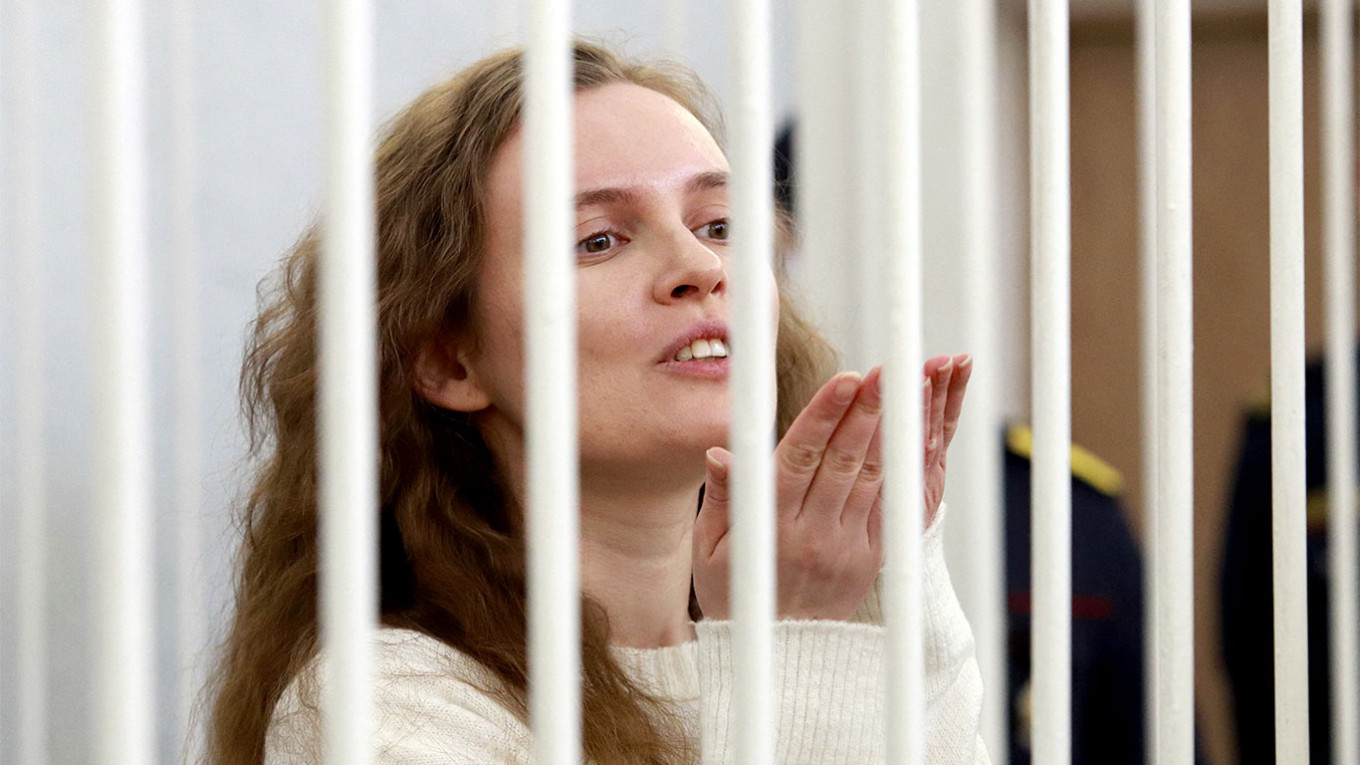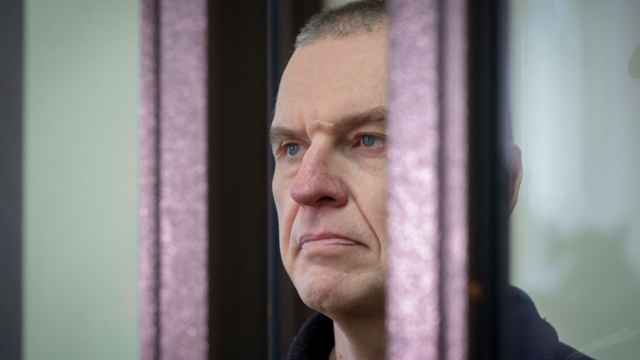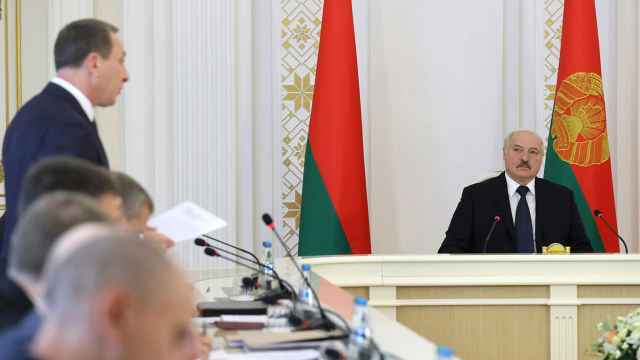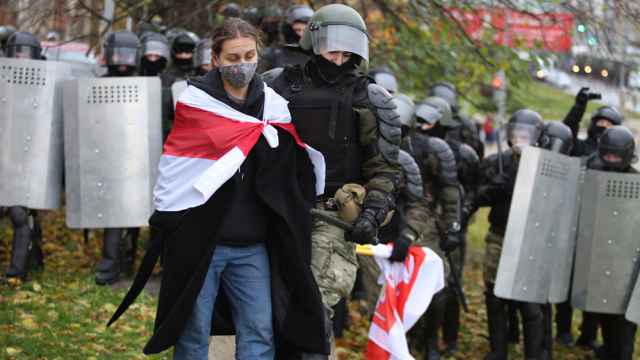Belarus on Wednesday sentenced a young journalist who covered protests against President Alexander Lukashenko to an additional eight years in prison for "state treason," the channel she worked for said.
Katerina Bakhvalova — who uses the pen name Katerina Andreyeva — was already serving a two-year sentence for "violating public order" and was due to be released in September.
The 28-year-old was detained in November 2020 with fellow journalist Daria Chultsova while filming one of the anti-government rallies that swept Belarus that year.
"Our colleague Katerina Andreyeva was sentenced to eight years in prison," the Poland-based Belsat TV channel and media said on Telegram.
It said she was transferred from the prison colony where she was held in Gomel, southeastern Belarus, and brought to a pre-trial detention center in February.
"For 55 days, her relatives did not know the details of the case," Belsat said.
The Viasna rights group said on its website that her family was informed in April that she was given a new "state treason" charge.
Viasna considers Bakhvalova to be one of 1,244 political prisoners in the country.
Belarus's exiled opposition leader Svetlana Tikhanovskaya said the sentence was punishment for showing "the truth."
"It makes me so angry to see the regime take revenge on those who dare to resist," she said on Twitter.
"She dared to show the truth about the regime's brutality to the world."
Rights group Amnesty international condemned "a politically motivated sham trial."
Marie Struthers, Amnesty International’s Director for Eastern Europe and Central Asia, said Andreyeva was being "subjected to absurd and baseless treason charges solely for her fearless work as a journalist."
She and "all other critics of the Belarusian authorities detained solely for peacefully exercising their right to freedom of expression must be immediately and unconditionally released and all charges against them must be dropped."
Lukashenko's regime has orchestrated a brutal crackdown on any pockets of dissent after unprecedented protests swept Belarus in 2020.
The Belarus strongman, in power since 1994, relies on neighboring Moscow for support.
His country had served as a springboard for the Russian army to launch its assault on Ukraine in late February.
A Message from The Moscow Times:
Dear readers,
We are facing unprecedented challenges. Russia's Prosecutor General's Office has designated The Moscow Times as an "undesirable" organization, criminalizing our work and putting our staff at risk of prosecution. This follows our earlier unjust labeling as a "foreign agent."
These actions are direct attempts to silence independent journalism in Russia. The authorities claim our work "discredits the decisions of the Russian leadership." We see things differently: we strive to provide accurate, unbiased reporting on Russia.
We, the journalists of The Moscow Times, refuse to be silenced. But to continue our work, we need your help.
Your support, no matter how small, makes a world of difference. If you can, please support us monthly starting from just $2. It's quick to set up, and every contribution makes a significant impact.
By supporting The Moscow Times, you're defending open, independent journalism in the face of repression. Thank you for standing with us.
Remind me later.






